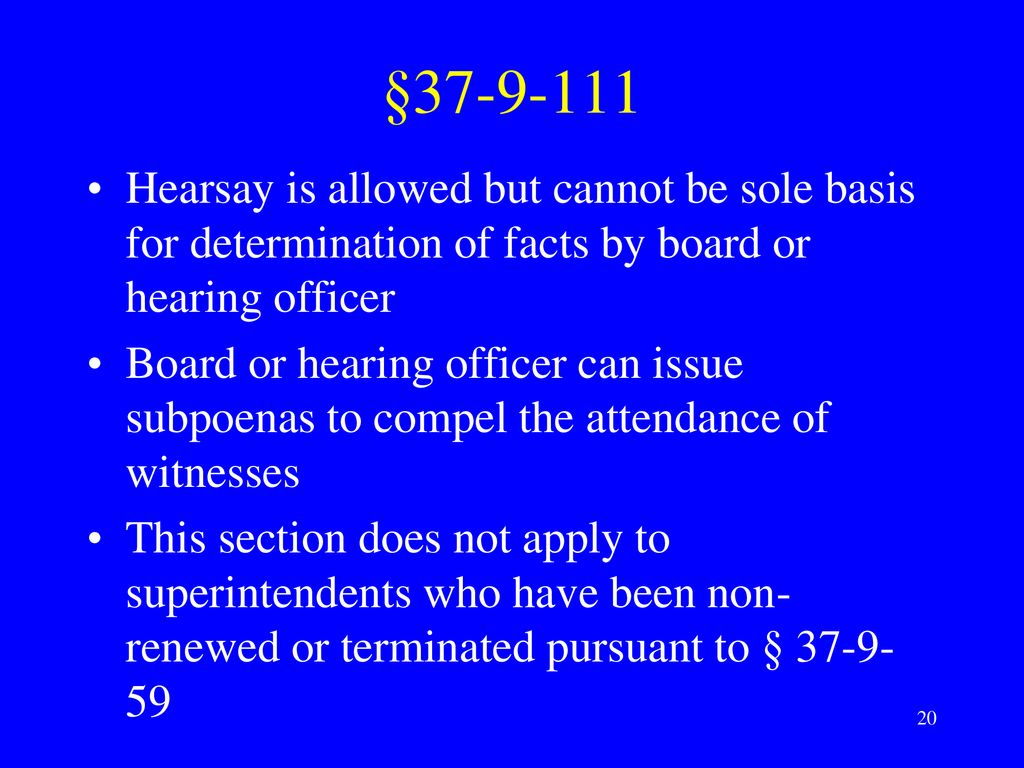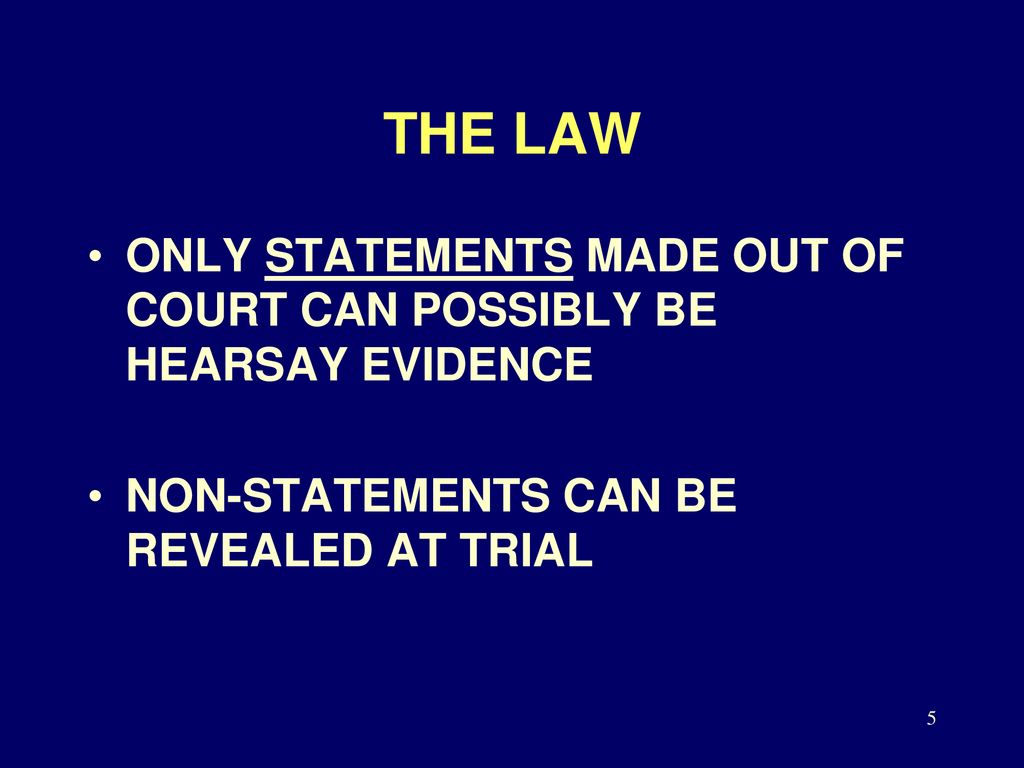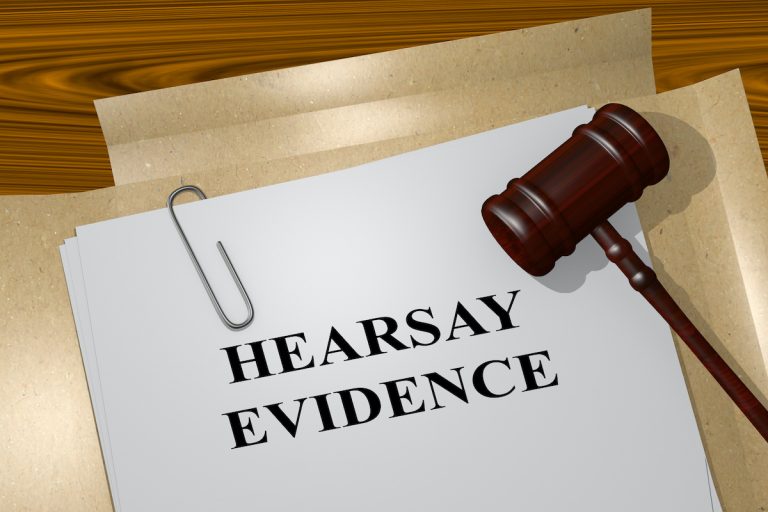Can A Warrant Be Issued On Hearsay - Rather a warrant is based on probable cause. That means there must be. A warrant being issued doesn't mean that the person has been found guilty. There must be evidence or no warrant can issue. In general, search warrants are governed by the fourth amendment of the u.s. You may not know it, or appreciate it's value, but that's irrelevant. More importantly, an affidavit based on hearsay (which could not be used as evidence in a criminal trial) can be used as the basis for issuing a. Only a judge or magistrate can do so. A warrant can be issued based on hearsay evidence. Rule 41(b)(5) provides the authority to issue warrants for the seizure of property in the designated locations when law enforcement.
There must be evidence or no warrant can issue. A warrant can be issued based on hearsay evidence. That means there must be. More importantly, an affidavit based on hearsay (which could not be used as evidence in a criminal trial) can be used as the basis for issuing a. Rather a warrant is based on probable cause. Only a judge or magistrate can do so. You may not know it, or appreciate it's value, but that's irrelevant. A warrant being issued doesn't mean that the person has been found guilty. Rule 41(b)(5) provides the authority to issue warrants for the seizure of property in the designated locations when law enforcement. In general, search warrants are governed by the fourth amendment of the u.s.
There must be evidence or no warrant can issue. Rather a warrant is based on probable cause. More importantly, an affidavit based on hearsay (which could not be used as evidence in a criminal trial) can be used as the basis for issuing a. A warrant can be issued based on hearsay evidence. Rule 41(b)(5) provides the authority to issue warrants for the seizure of property in the designated locations when law enforcement. A warrant being issued doesn't mean that the person has been found guilty. Only a judge or magistrate can do so. In general, search warrants are governed by the fourth amendment of the u.s. A law firm cannot issue a warrant; You may not know it, or appreciate it's value, but that's irrelevant.
Judicial Warrant vs. Administrative Warrant Luminus
That means there must be. A law firm cannot issue a warrant; In general, search warrants are governed by the fourth amendment of the u.s. A warrant can be issued based on hearsay evidence. Rather a warrant is based on probable cause.
Hearsay Evidence Admissibility and Objection of It in Singapore
Rule 41(b)(5) provides the authority to issue warrants for the seizure of property in the designated locations when law enforcement. Rather a warrant is based on probable cause. A warrant being issued doesn't mean that the person has been found guilty. You may not know it, or appreciate it's value, but that's irrelevant. Only a judge or magistrate can do.
Everything You Need To Know About Hearsay Evidence JudgeDumas
A warrant being issued doesn't mean that the person has been found guilty. You may not know it, or appreciate it's value, but that's irrelevant. A warrant can be issued based on hearsay evidence. There must be evidence or no warrant can issue. In general, search warrants are governed by the fourth amendment of the u.s.
Education Employment Procedures Law of ppt download
A law firm cannot issue a warrant; Only a judge or magistrate can do so. Rather a warrant is based on probable cause. A warrant being issued doesn't mean that the person has been found guilty. There must be evidence or no warrant can issue.
How Do I Check if a Warrant is Out for My Arrest?
Rule 41(b)(5) provides the authority to issue warrants for the seizure of property in the designated locations when law enforcement. Rather a warrant is based on probable cause. A warrant being issued doesn't mean that the person has been found guilty. A law firm cannot issue a warrant; That means there must be.
What Is Hearsay Evidence?
Only a judge or magistrate can do so. Rule 41(b)(5) provides the authority to issue warrants for the seizure of property in the designated locations when law enforcement. There must be evidence or no warrant can issue. More importantly, an affidavit based on hearsay (which could not be used as evidence in a criminal trial) can be used as the.
CHAP. 3 INTRODUCTION TO THE HEARSAY RULE ppt download
That means there must be. A warrant can be issued based on hearsay evidence. There must be evidence or no warrant can issue. Only a judge or magistrate can do so. Rather a warrant is based on probable cause.
What Is Hearsay Evidence and When Can It Be Used in Court?
Only a judge or magistrate can do so. There must be evidence or no warrant can issue. A law firm cannot issue a warrant; You may not know it, or appreciate it's value, but that's irrelevant. A warrant can be issued based on hearsay evidence.
essay warrant
There must be evidence or no warrant can issue. More importantly, an affidavit based on hearsay (which could not be used as evidence in a criminal trial) can be used as the basis for issuing a. That means there must be. In general, search warrants are governed by the fourth amendment of the u.s. Rule 41(b)(5) provides the authority to.
Evidence Quick Tip How to Spot and Analyze Hearsay UWorld Legal
A law firm cannot issue a warrant; Rather a warrant is based on probable cause. Rule 41(b)(5) provides the authority to issue warrants for the seizure of property in the designated locations when law enforcement. You may not know it, or appreciate it's value, but that's irrelevant. A warrant can be issued based on hearsay evidence.
A Warrant Can Be Issued Based On Hearsay Evidence.
That means there must be. More importantly, an affidavit based on hearsay (which could not be used as evidence in a criminal trial) can be used as the basis for issuing a. A law firm cannot issue a warrant; Rule 41(b)(5) provides the authority to issue warrants for the seizure of property in the designated locations when law enforcement.
A Warrant Being Issued Doesn't Mean That The Person Has Been Found Guilty.
You may not know it, or appreciate it's value, but that's irrelevant. Only a judge or magistrate can do so. In general, search warrants are governed by the fourth amendment of the u.s. Rather a warrant is based on probable cause.








